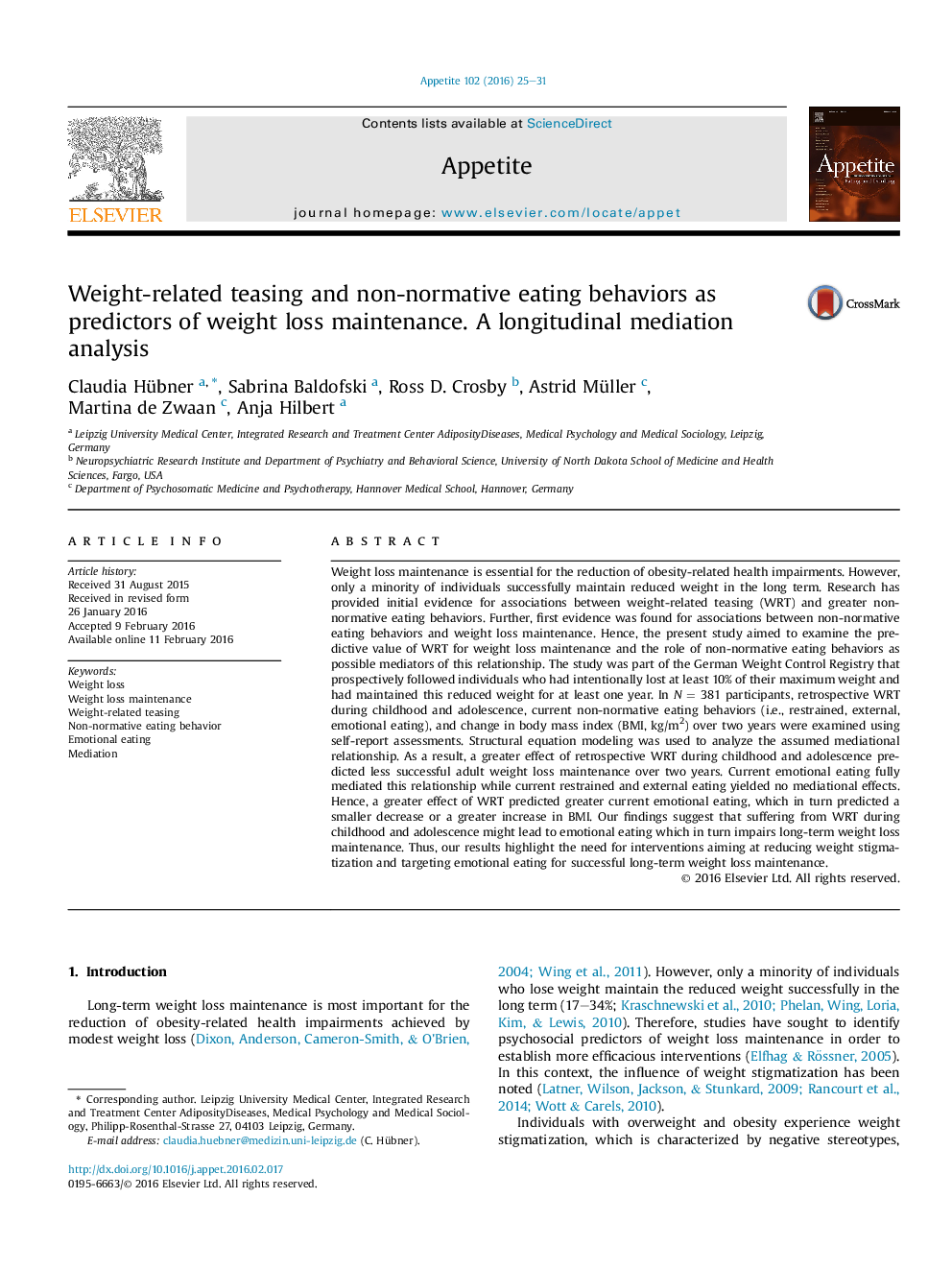| کد مقاله | کد نشریه | سال انتشار | مقاله انگلیسی | نسخه تمام متن |
|---|---|---|---|---|
| 939271 | 1475378 | 2016 | 7 صفحه PDF | دانلود رایگان |
Weight loss maintenance is essential for the reduction of obesity-related health impairments. However, only a minority of individuals successfully maintain reduced weight in the long term. Research has provided initial evidence for associations between weight-related teasing (WRT) and greater non-normative eating behaviors. Further, first evidence was found for associations between non-normative eating behaviors and weight loss maintenance. Hence, the present study aimed to examine the predictive value of WRT for weight loss maintenance and the role of non-normative eating behaviors as possible mediators of this relationship. The study was part of the German Weight Control Registry that prospectively followed individuals who had intentionally lost at least 10% of their maximum weight and had maintained this reduced weight for at least one year. In N = 381 participants, retrospective WRT during childhood and adolescence, current non-normative eating behaviors (i.e., restrained, external, emotional eating), and change in body mass index (BMI, kg/m2) over two years were examined using self-report assessments. Structural equation modeling was used to analyze the assumed mediational relationship. As a result, a greater effect of retrospective WRT during childhood and adolescence predicted less successful adult weight loss maintenance over two years. Current emotional eating fully mediated this relationship while current restrained and external eating yielded no mediational effects. Hence, a greater effect of WRT predicted greater current emotional eating, which in turn predicted a smaller decrease or a greater increase in BMI. Our findings suggest that suffering from WRT during childhood and adolescence might lead to emotional eating which in turn impairs long-term weight loss maintenance. Thus, our results highlight the need for interventions aiming at reducing weight stigmatization and targeting emotional eating for successful long-term weight loss maintenance.
Journal: Appetite - Volume 102, 1 July 2016, Pages 25–31
